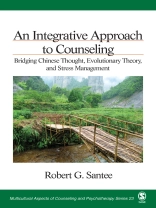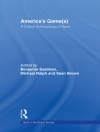An Integrative Approach to Counseling: Bridging Chinese Thought, Evolutionary Theory, and Stress Management offers a global and integrative approach to counseling that incorporates multiple concepts and techniques from both eastern and western perspectives. The book identifies commonalities rather than the differences between them. The book also compares and contrasts the underlying cultural assumptions of western counseling with those of the Chinese perspectives of Confucianism, Daoism, and Buddhism, relative to integrating and applying a more global approach to helping individuals functionally adapt to challenges in their environments. The book will be used by faculty and students in those advanced undergraduate and graduate courses in psychology, counseling, or social work that cover such areas as introduction to counseling, counseling skills and techniques, counseling theories, multi-cultural awareness and counseling, and stress management.
Cuprins
Series Editor′s Foreword
Acknowledgments
Introduction
PART I: FUNDAMENTAL PRINCIPLES AND CONCEPTS
Ch 1: Evolutionary Theory and Evolutionary Psychology
Ch 2: Stress and the Stress Response
Ch 3: Stress Management
PART II: CULTURALLY DIVERESE APPROACHES TO MANAGING STRESS
Ch 4: Buddhism and Stress Management
Ch 5: Daoism and Stress Management
Ch 6: Confucianism and Stress Management
PART III: INTEGRATION AND APPLICATION OF CULTURALLY DIVERSE APPROACHES TO MANAGING STRESS
Ch 7: Underlying Cultural Assumptions
Ch 8: Rapport
Ch 9: Thinking
Ch 10: Feeling
Ch 11: Behaving
Ch 12: Interpersonal Relationships
Ch 13: Spirituality
Index
About the Author
Despre autor
Robert Santee is a Full Professor of Psychology at Chaminade University of Honolulu, in Hawaii, where he is the Dean of Behavioral Sciences, the Director of the Masters of Science in Counseling Psychology Program, the Coordinator for the undergraduate Psychology program and the University Assessment Facilitator. He has been employed full-time at Chaminade University for 12 years.Dr. Santee has a Ph D in Philosophy (general focus in Asian Philosophy, specific focus in Chinese Philosophy and a specialization in Daoism), a Ph D in Educational Psychology (focus in assessment and psychometrics), a Masters in Counseling and Guidance (Community Counseling), a Masters in Philosophy (specialization in Daoism), and a Masters in Educational Foundations (focus on examining teaching methods of Kendo). Dr. Santee is a Nationally Certified Counselor. Dr. Santee has developed and teaches Daoist Psychology, Buddhist Psychology, Psychology of T’ai Chi Ch’uan, Health and Stress Psychology, and Evolutionary Psychology in the undergraduate psychology department. He also has developed and teaches Introduction to Chinese Thought, Taoism (Daoism) and Confucianism for the religion department. At the graduate level, he teaches a class in Health, Stress Management and Counseling and a class in Cross-Cultural Counseling. Tai Ji Quan (T’ai Chi Ch’uan), and Qi Gong (Ch’i Kung) are incorporated in both graduate classes, all three religion classes, and three of the undergraduate classes.His examination of the relationship between Western counseling, Chinese thought, evolutionary theory/psychology, the stress response and stress management has resulted in writing and presenting papers at conferences in Taipei (Taiwan), Tiantai (China), Chengdu (China), and Honolulu, Hawaii. His exploration of the relationship between Western Counseling and Chinese thought has been guided by his training in Chinese martial arts. He is a student, practitioner, and teacher of Tai Ji Quan (T’ai Chi Ch’uan), and Qi Gong (Ch’i Kung). He is also a practitioner and student of Ba Gua Zhang (Pa Kua Chang). Dr. Santee has worked full-time (16 years) as an operating room technician assisting in surgery and full-time (5 years) as a Psychological Examiner administering IQ, Achievement, and Personality tests.












